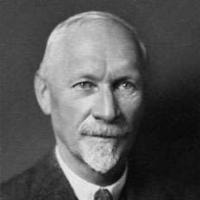Today in Kimberley's History
|
|
|
|
.
|
Jan Smuts calls general election - 1924
After losing the Wakkerstroom and Oudtshoorn by-elections in April, prime minister and leader of the South African Party (SAP), J.C. Smuts, decided to hold a general election in 1924. The SAP suffered a defeat at the hands of the Nationalist Party (NP), which won sixty-three seats, and Labour Party winning eighteen seats, with the SAP securing only fifty-three seats. After the election, the National Party and Labour Party formed a pact government, with General J.B.M. Hertzog in the position of prime minister. Hertzog appointed two Labour Party members, F.H.P. Creswell and Thomas Boydell to his Cabinet. |
Parliament votes to repeal the legal framework of Apartheid - 1991
For almost 350 years, Black people in South Africa had been subject to exceedingly unjust laws designed, firstly to subjugate them and incorporate their lands into the British Empire, and secondly to turn them in labour reserves that ensured privilege to a White minority. The vote on 17 June 1991 that repealed the legal framework of Apartheid and began the process that would eventually abolish Apartheid as a whole was bitterly contested as many members of the White electorate sought to cling to the privileges afforded to them under Apartheid. The legal framework in question, consisting of four Acts, namely, the Population Registration Act of 1950, The Group Areas Act, the Land Act and the Separate Amenities Act. The repealing of these Acts did not include extending the right to vote to all of South Africa's citizens. FW de Klerk, who was President at the time, committed himself to this eventuality as soon as a new constitution was drafted. This process culminated in the first democratic elections in 1994, with Nelson Mandela as the first Black President. The repeal of the legal framework was the result of unified opposition by people from all over the world, who collectively put pressure on the Apartheid government, lobbied for sanctions, and supported the work of the liberation movements and civil society in exposing the evils of the Apartheid system.
For almost 350 years, Black people in South Africa had been subject to exceedingly unjust laws designed, firstly to subjugate them and incorporate their lands into the British Empire, and secondly to turn them in labour reserves that ensured privilege to a White minority. The vote on 17 June 1991 that repealed the legal framework of Apartheid and began the process that would eventually abolish Apartheid as a whole was bitterly contested as many members of the White electorate sought to cling to the privileges afforded to them under Apartheid. The legal framework in question, consisting of four Acts, namely, the Population Registration Act of 1950, The Group Areas Act, the Land Act and the Separate Amenities Act. The repealing of these Acts did not include extending the right to vote to all of South Africa's citizens. FW de Klerk, who was President at the time, committed himself to this eventuality as soon as a new constitution was drafted. This process culminated in the first democratic elections in 1994, with Nelson Mandela as the first Black President. The repeal of the legal framework was the result of unified opposition by people from all over the world, who collectively put pressure on the Apartheid government, lobbied for sanctions, and supported the work of the liberation movements and civil society in exposing the evils of the Apartheid system.

